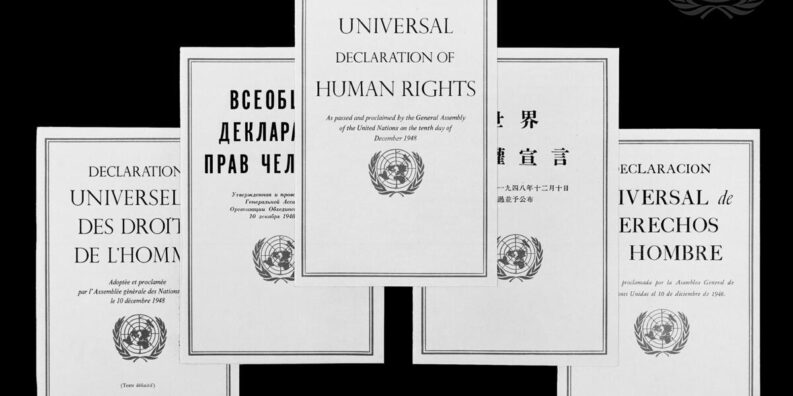Letter published in the Montreal Gazette, on December 10, 2024
Human Rights Day: historic setbacks in Quebec
Sam Boskey, First Vice- President of Ligue des droits et libertés (LDL)
Laurence Guénette, Coordinator of Ligue des droits et libertés (LDL)
Paul-Etienne Rainville, Policy Affairs Officer of Ligue des droits et libertés (LDL)
Every year, Human Rights Day – December 10 – commemorates the adoption of the Universal Declaration of Human Rights (UDHR). It is also a time to assess the progress made in human rights and the obstacles that continue to hinder their exercise.
The Ligue des droits et libertés (LDL) reminds the Quebec government of the importance of the UDHR, and of its obligations under international law to respect and strengthen Quebec’s human rights protection regime. It denounces the growing use of the notwithstanding clauses in the Charters and warns against the misleading rhetoric – about parliamentary sovereignty, secularism, collective rights and “Quebec values” – that is being used as a pretext to justify rights violations.
The UDHR set forth for the first time a set of rights of ALL persons by virtue of their belonging to humanity. These rights are universal, inalienable, indivisible and interdependent. As its preamble emphasizes, this Declaration represents a “common standard of achievement for all peoples and all nations”.
Following its adoption, various groups in Quebec worked to promote recognition of the rights set out in the UDHR and further elaborated in the two International Covenants (ratified by both Quebec and Canada in 1976) that form the basis of international human rights law. At the dawn of the Quiet Revolution, many organizations, including the LDL, called for the adoption of a provincial charter of rights.
Unanimously adopted by the National Assembly in 1975, the Quebec Charter of Human Rights and Freedoms is considered a unique document in the North American legal landscape. In addition to recognizing civil and political rights and the right to equality, it includes a series of economic, social and cultural rights. This quasi-constitutional law is a historic step in the modernization of Quebec, placing the principles of international human rights law at the very heart of our legal system.
In recent years, however, there has been a disturbing banalizing of Charters and of human rights, particularly in the context of debates on the secular nature of the state, the protection of the French language and constitutional jurisdiction. The provincial government is resorting to the use of the notwithstanding clauses in the Charters, as was the case for Bill 21 in 2019 (notwithstanding clause renewed in 2024) and Bill 96, in 2022.
The government’s recent declaration of its intention to once again use notwithstanding clauses to ban prayers in public spaces demonstrates this dangerous trend towards weakening human rights protections.
Many attacks on human rights are based on a fictitious conflict between individual and collective rights. This reflects an erroneous conception of international human rights law which is clear that individual and collective rights are profoundly interdependent. Thus, although the right of peoples to self-determination is recognized in the International Covenants, the exercise of this right may in no case infringe on the rights of individuals or minorities.
The current rhetoric on “Quebec values” is particularly problematic, as the values of a majority, as defined by a government sensitive to the vagaries of public opinion, can pose a direct threat to rights and contribute to the exclusion or marginalization of certain minorities. The LDL insists on the need to ensure the protection of human rights, notably through Charters, and reiterates that these rights must never be subservient to the values of the majority.
The Quebec government regularly invokes “parliamentary sovereignty” when it derogates from the Charters to evade the critical scrutiny of the courts. Let us not forget that the courts play an essential role in democracy and the rule of law, and that the function of human rights protection instruments is precisely to limit the possible excesses of majority and parliamentary powers.
On this Human Rights Day and beyond, we should all celebrate our human rights protection instruments and be wary of any attempt to dilute their impact.
